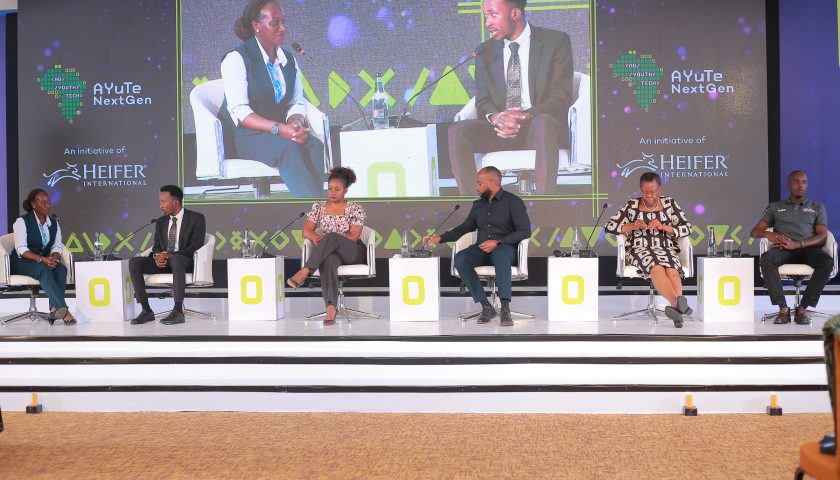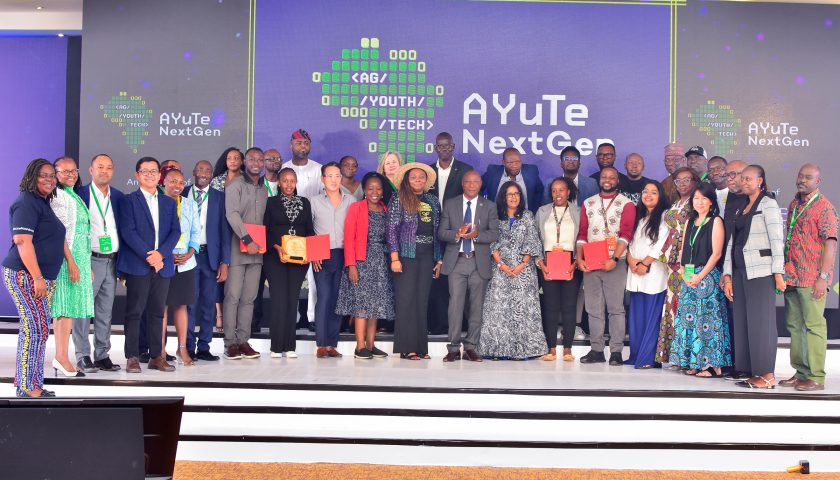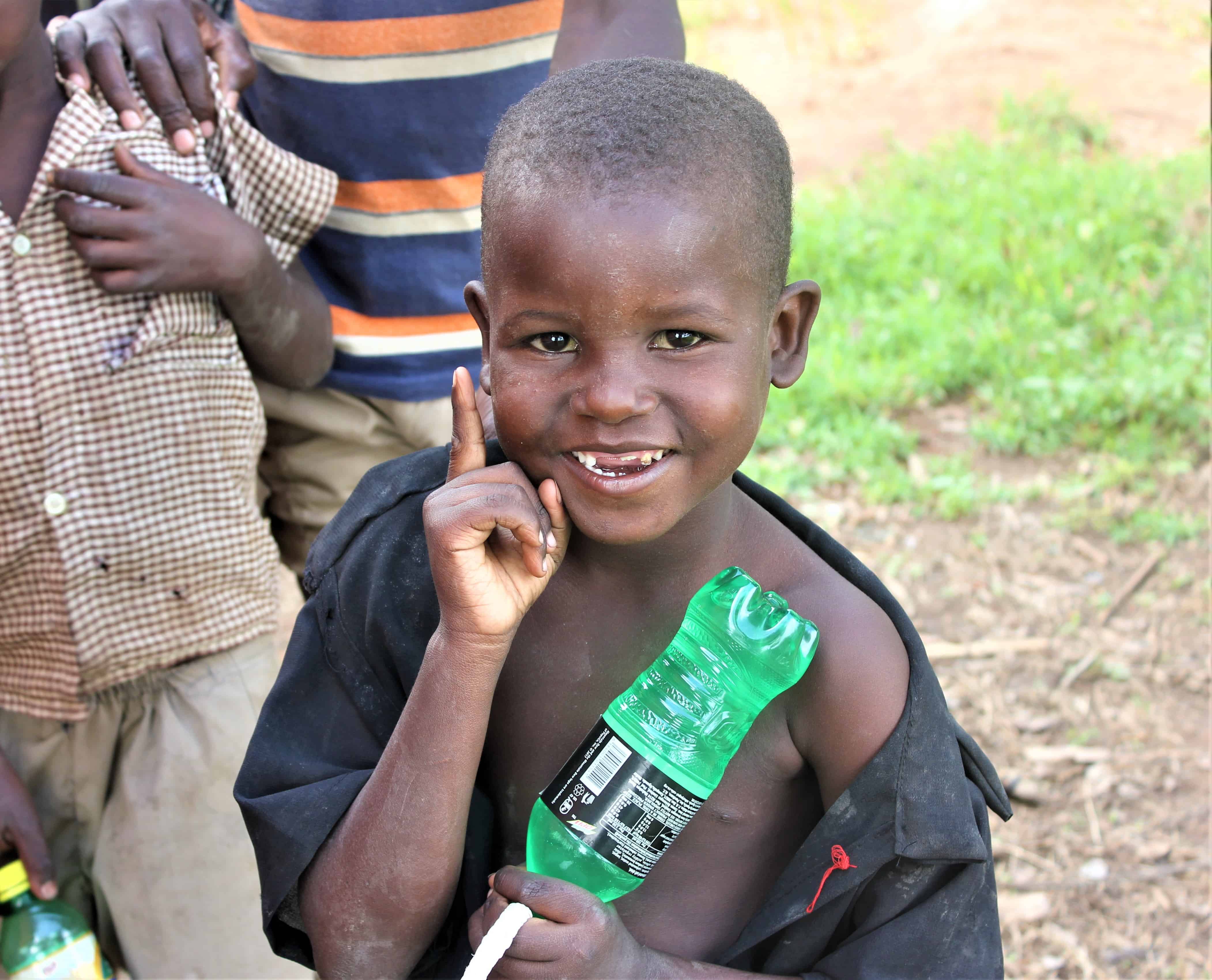“The future of food in Africa depends on how we support those who are already trying to grow it,” the Minister of State for Information, Communication and Technology, Hon. Godfrey Kabyanga, said in his speech at the 2025 AYuTe Next Generation Rising Conference.
The Agriculture Youth and Technology – AYuTe Next Generation Rising conference held from 17th to 19th June at the Speke Resort Munyonyo, brought together students, ministers, investors, innovators, and other dignitaries from around the world to discuss the shape of agriculture.
In his remarks, Kabyanga said that Uganda has one of the youngest populations on the continent, with more than 70% being youth, which makes agriculture a key focus area. But many young people already doing it or aspiring to join the agricultural sector face funding difficulties.
“If you die without visiting Uganda, then you have not truly seen Africa. We are endowed, but funding is the issue,” he said, urging investors to support young innovators with funding.
“If you are rich and your neighbors are poor, they will always steal from you. But if you empower them, they won’t need to,” he added. “The future belongs to those who dare to build it. I am a village man, but I am now a minister because I dared.”
He, in addition, raised his satisfaction with how modern technology has also made farming more attractive to young people. Kabyanga said in the past, many youths were running away from agriculture because of the hard work involved, but now, with tools like artificial intelligence (AI), farm work has become easier.
He encouraged young people to use technology the right way to boost their productivity, especially by improving seed quality and farming methods. As well, he said the government is investing heavily in technology in more districts to support agriculture. Internet costs have already gone down and are expected to reduce further, which is another sign of hope.
He, however, challenged farmers to more than double their production to be in a position to match the population’s demand. Kabyanga gave an example from his visit to South Korea, where people are growing a lot of food despite having rocky land.
“In Uganda, we have plenty of fertile land but still we produce less than we need. We cannot keep waiting for Americans to feed us when they are also struggling. It is a shame. Our weather is better—we have sunshine all year—and we should take advantage of it through things like solar irrigation,” Kabyanga added, saying that mindset change is also key in shaping the future of agriculture in Uganda, particularly.
“Many people still look at agriculture as a backup plan, but farming should be seen as a real business and a path to success.”
Former Minister of Agriculture, Animal Industry and Fisheries, Hon. Victoria Ssekitoleko, said farming must be made easier for the youth. She said you cannot make good decisions for young people if you don’t even understand the digital tools they use.
“You cannot be a minister with a button phone and think you know what the youth need,” she said. She also urged older people to accept change and go digital. “We are not going back to the old ways. The future is digital.”
Sandra Nabasirye, a young farmer known as the Slay Farmer, said social media is helping to promote agriculture among the youth. “I farm, and I post about it. It inspires others,” she said.
She added that many leaders rely on statistics without knowing what’s really happening on the ground. “Young people must be part of decision-making because we are the ones doing the actual work.”

Allan Ahimbisimbwe, a young agripreneur who runs Spark Agro Initiative, said there are many challenges across the agriculture value chain, and young people have ideas that can help fix them. “We face these problems every day. Let us be part of the solution,” he said.
Jean Claude Niyomugabo from Rwanda said his biggest challenge was getting young people to believe that agriculture is not just for poor people. He said social media can help change that mindset. “Let farmers share their stories. That is what will inspire others,” he said.
Towett Ngetich from Kenya said that people need to shift from subsistence farming to commercial farming. “When you start making money from agriculture, you stop seeing it as a fallback,” he said, urging investors to trust young innovators.
“We have the ideas. We just need someone to believe in us and support us with funding,” he added.
AYuTe Next Generation Rising is an initiative designed to spotlight and support young agripreneurs who are transforming agriculture through innovation and technology across Africa. The program is part of Heifer International’s broader AYuTe Africa Challenge, which aims to accelerate digital and tech-driven solutions in the agricultural sector.
The “Rising” component specifically targets early-stage innovators—often youth—who are developing promising agri-tech solutions that address challenges faced by smallholder farmers. These can include innovations in areas such as precision farming, digital finance, supply chain logistics, climate-smart agriculture, and livestock management.

